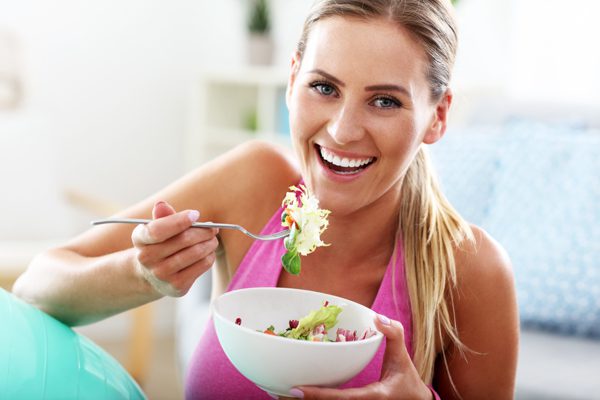
A lifetime of good nutrition: Sara Widdowson of Oxford Women’s Health on eating your way to better health

As women’s bodies grow and change, nutritional needs change too. Sara Widdowson, a Nutrition Consultant and Dietitian at Oxford Women’s Health, shares her expert advice on staying healthy at every age and stage of life.
What are the top priorities for children and adolescents when it comes to good nutrition?
Children and adolescents are still growing and need lots of energy. Rather than filling them up with calorie-dense foods, keep the focus on nutrient-rich foods, such as colourful vegetables, lean meat and milk, to make sure they are getting all they need to thrive.
Encouraging children to listen to their bodies – like stopping eating when they’re full – helps to establish good eating habits that will set them up for life.
For young women, iron intake is particularly important. Meat, nuts, and leafy-green vegetables all contain iron.
What should pregnant women be eating to help improve the health of their baby?
Instead of ‘eating for two’, pregnant women should be eating food that is twice as healthy. ‘Quality over quantity’ is an easy way to think about it.
What mum puts in her body is really important for the baby’s development. Folate from foods such as dark green vegetables, beans and lentils helps to prevent neural defects, while iodine is important for brain development, for example.

Do nutritional needs change when you are having a period?
Your basal-metabolic rate – how much energy you’re burning at rest – is higher when you are having a period. I encourage women not to avoid that hunger but to try and choose nutrient-dense foods. Instead of chocolate, try magnesium-rich options like nuts and seafood.
Which foods are beneficial for women going through menopause?
Oestrogen and progesterone drop during menopause, which is particularly detrimental to bone health. Upping your calcium intake by eating canned fish, soy products and calcium-rich milk is crucial during this time.
There’s evidence to suggest that foods like tofu, milk, chickpeas, flaxseeds and lentils can help to reduce menopause symptoms.
Do older people have different nutritional needs?
When you get older you lose your thirst receptors, which means you can be dehydrated and not know it. Have a jug of water or water bottles in your fridge, so you can make sure you are drinking enough.
Getting short doses of vitamin D from the sun every day is important for bone health. Deficiency in B12 is also very common in older people, so including foods like milk, eggs, fish and chicken in your diet is key.
The most important thing to do at any age is to eat a nutrient rich diet. Eat vegetables at every meal, if possible, and include ‘good fats’ like oily fish, avocado and flaxseed oil in your daily routine.



